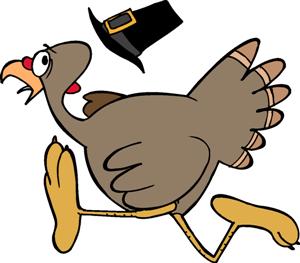THE ORIGINAL
THANKSGIVING FEAST

Our Plymouth forefather’s did
not originate the “first” Thanksgiving Feast. Being deeply religious,
they looked to the Bible for an appropriate way of celebrating and
giving thanks to the Lord. The first Thanksgiving was based in part
on the Sukkoth (Feast of the Tabernacle); a Hebrew autumn festival.
This ancient feast is still celebrated on the fifteenth through the
twenty-second days of the seventh month (Tishri). The Hebrew word
sukkah means a makeshift shelter or a hut. Sukkoth commemorates the
journey of the Israelites with Moses as they traveled for 40 years
in the desert. Every able-bodied male is required to dwell in a temporary
booth “sukkah” during this festival. The sukkah must be made of perishable
plants grown from the earth. It must be imperfect, because the Israelites
were vulnerable and dependent on the Lord during their wanderings
in the wilderness. The sukkah structure must have three walls and
a roof that is loosely thatched to allow the rain to come in and have
a view of the heavens. The meaning behind the sukkah – even though
man feels secure in the world he has built for himself, he must never
lose sight of the Lord. It is a flamboyant feast which incorporates
the “Four Species”. The Lord commanded the people to take these four
plants and use them to rejoice before the Lord. The plants are: the
Etrog - a citrus fruit native to Israel; Lulav - a palm branch; Arava
- two willow branches; and Hadas - three myrtle branches. The six
branches of the Lulav, Arava and the Hadas are bound together, collectively
called the Lulav, and carried in the right hand. The Etrog is held
separately in the left hand. With these plants in each hand, one recites
a blessing and waves them in six directions: up, down, north, south,
east and west. This symbolizes that God is everywhere. Such was the
first Thanksgiving at Plymouth Rock. The Pilgrims were vulnerable,
dependent on the Lord for sustenance, and yet thankful that the Lord
was everywhere - even in the New World! Cooking that turkey doesn’t
seem so difficult now, does it?
|
